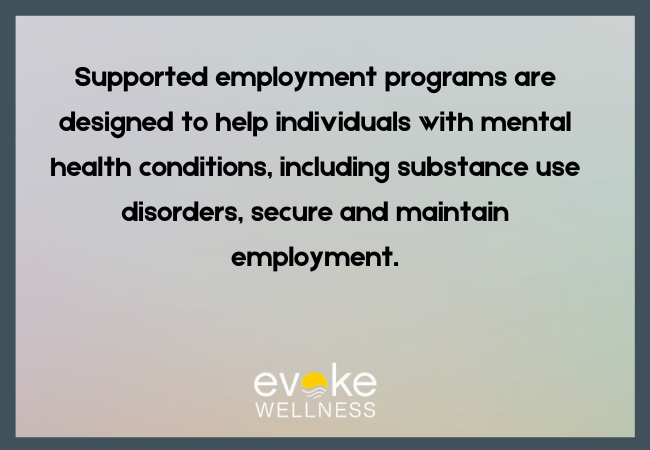Seeking treatment for addiction is a significant step toward a healthier future, but many individuals hesitate to enter residential rehab due to concerns about their jobs and financial responsibilities. The question of whether you can work while undergoing treatment is a common one, and the answer depends on the structure of the program, employment laws, and an individual’s specific needs.
Balancing work with addiction recovery requires careful planning and open communication with employers, treatment providers, and support networks. In this guide, we will explore how employment and addiction treatment can coexist, what legal protections are available, and how prioritizing recovery can ultimately lead to professional growth and success.
The Purpose and Structure of Residential Rehab
A residential treatment program in Ohio provides 24/7 care and structured support for individuals struggling with addiction. Unlike outpatient programs, residential treatment requires individuals to stay at the facility for a designated period, typically ranging from 30 to 90 days or longer.
Key Features of Residential Rehab
- 24/7 Medical and Emotional Support: Round-the-clock care ensures individuals have access to medical professionals and therapists at all times.
- Structured Daily Routine: Patients follow a schedule that includes therapy sessions, group meetings, fitness activities, and wellness programs.
- Removal from Triggers and Stressors: Living in a controlled, substance-free environment helps minimize exposure to relapse triggers.
- Comprehensive Therapy Options: Programs incorporate various therapeutic approaches, including individual therapy, group counseling, cognitive-behavioral therapy (CBT), and holistic treatments.
- Aftercare and Transition Planning: Preparing individuals for life after rehab with relapse prevention strategies, career counseling, and community support resources.
A typical residential rehab program includes:
- Medical detox (if needed)
- Individual and group therapy (CBT, DBT, trauma therapy, etc.)
- Structured daily schedules focused on recovery
- Nutritional counseling, fitness programs, and holistic therapies
- Aftercare planning to prevent relapse
Since residential rehab is an immersive experience, working during treatment is often difficult, but there are options available for those who need to balance their professional responsibilities with recovery.
How Employment Is Handled During Treatment
Employment concerns should not prevent individuals from seeking the help they need. Many laws and workplace policies exist to protect employees undergoing medical treatment, including addiction recovery. Understanding these protections can help individuals feel more secure about taking time off for treatment.
Legal Protections for Employees in Rehab
Family and Medical Leave Act (FMLA)
The Family and Medical Leave Act allows eligible employees to take up to 12 weeks of unpaid leave for medical reasons, including addiction treatment, without fear of job loss. This applies to businesses with 50 or more employees and requires individuals to have worked at their job for at least 12 months.
Americans with Disabilities Act (ADA)
The ADA protects individuals in recovery from discrimination in the workplace and requires employers to provide reasonable accommodations. While active drug use is not protected, individuals who are seeking treatment or are in recovery may qualify for protection.
Employer Assistance Programs (EAPs)
Many companies offer confidential Employee Assistance Programs (EAPs) that provide support for employees struggling with addiction. These programs may offer counseling services, referrals to treatment centers, and assistance with work-related concerns.
Can You Keep Working While in Rehab?
While traditional employment may not be feasible during residential rehab, there are several options for maintaining professional responsibilities while focusing on recovery:
Remote Work and Flexible Scheduling
Some individuals with remote jobs or understanding employers may be able to continue working part-time while in treatment. However, this depends on the rehab facility’s policies and whether work-related stressors could hinder recovery progress.
Paid Time Off and Leave of Absence
Some employers offer paid medical leave, sabbaticals, or short-term disability benefits that allow individuals to step away from work without financial strain. Checking with human resources about available benefits can help in planning treatment.
Professional Development Opportunities
Some residential rehab programs include career counseling, job training, and skill-building workshops. These resources help individuals rebuild their careers post-treatment by enhancing their employability and confidence.
Limited Work Responsibilities
For those who cannot fully step away from work, setting boundaries and limiting work tasks to essential responsibilities can help balance treatment with job requirements.
The Benefits of Prioritizing Recovery Over Work
While concerns about job security and finances are valid, prioritizing treatment can lead to better long-term career outcomes. Some of the benefits include:
Improved Work Performance
Overcoming addiction improves focus, productivity, and reliability, making individuals more effective in their professional roles.
Strengthened Workplace Relationships
Recovery fosters better communication and collaboration with colleagues and supervisors, enhancing overall workplace interactions.
Career Growth and Stability
A healthy, sober lifestyle can lead to better job prospects, career advancement, and financial stability.

Balancing Recovery with Work Responsibilities
If you choose to work while in rehab, here are ways to maintain balance:
1. Prioritize Treatment
Recovery should always come first. Set clear boundaries between work and therapy.
2. Inform Your Employer (If Comfortable)
Consider speaking with HR or a trusted supervisor about your treatment needs. You are not required to disclose details, but transparency may lead to better support and accommodations.
3. Reduce Workload & Stress
- Delegate tasks if possible
- Set realistic expectations for work commitments
- Use stress-management techniques to stay focused on recovery
4. Plan for Aftercare & Transitioning Back to Work
After rehab, consider outpatient programs or therapy to support your return to work. A gradual transition helps prevent relapse while adjusting to responsibilities.
Alternatives to Residential Rehab for Working Professionals
If stepping away from work isn’t an option, consider alternative treatment programs:
1. Intensive Outpatient Programs (IOP)
- Allows individuals to live at home while attending therapy multiple times per week
- Ideal for those needing flexibility while maintaining work and family responsibilities
2. Partial Hospitalization Programs (PHP)
- More intensive than IOP but does not require overnight stays
- Suitable for those needing structured treatment but with some independence
3. Telehealth and Virtual Therapy Options
- Online counseling or therapy for mild to moderate addiction
- Best for individuals who don’t require medical detox
Finding the Right Balance Between Work and Recovery
For many, stepping away from work during rehab is the best way to fully focus on recovery and build a strong foundation for sobriety. However, alternative treatment programs like IOPs and PHPs provide more flexibility for working professionals.
If maintaining some level of professional engagement is necessary during treatment, discussing options with a facility like Evoke Wellness at Hilliard can help. Some programs offer tailored approaches that allow individuals to stay connected with work while receiving comprehensive care. Together, let’s embrace the journey to recovery and the promise of a new beginning. Call us at 866.430.9267 today or reach out online.
Frequently Asked Questions
Can I lose my job if I go to rehab?
Many employees are protected under the FMLA and ADA, which prevent job loss due to medical treatment, including addiction recovery. It is best to communicate with your employer and explore your legal rights.
Can I continue working remotely while in residential rehab?
Some rehab facilities allow individuals to work remotely in a limited capacity, but it depends on the program’s policies and the individual’s ability to balance work and treatment effectively.
Will my employer find out I am in rehab?
If you use FMLA or an EAP, your employer will know that you are receiving medical treatment but does not need to know specific details. Addiction treatment is confidential under HIPAA regulations.
What happens if I cannot afford to take time off work for rehab?
Options such as short-term disability benefits, EAP assistance, and financial aid from rehab centers may help individuals manage costs while prioritizing recovery.
How can rehab help me return to work successfully?
Many rehab programs provide career counseling, skill-building workshops, and aftercare support to ensure individuals transition back into their professional roles with confidence.



